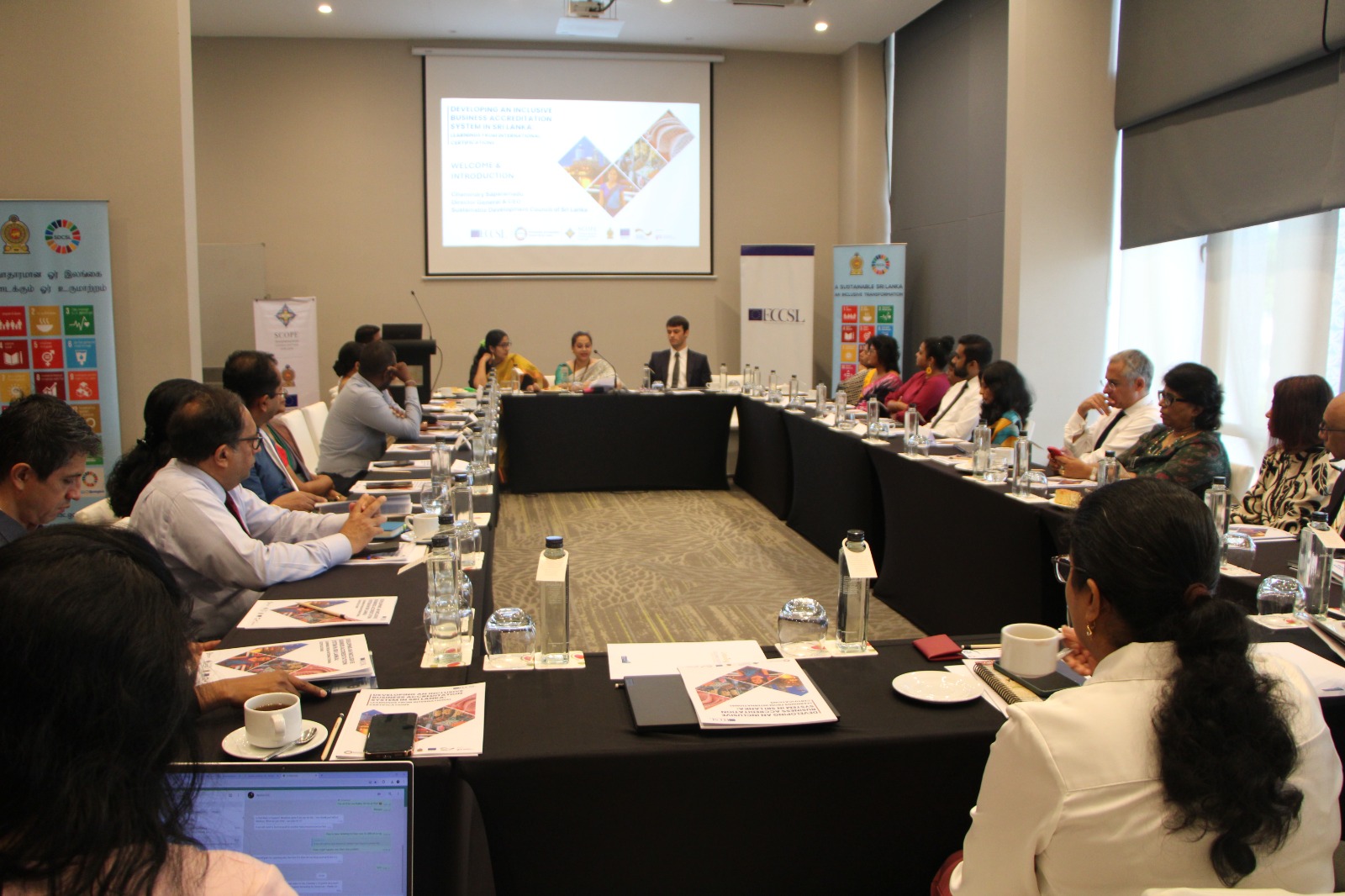Roundtable Discussion on Developing an Inclusive Business Accreditation System in Sri Lanka
Roundtable Discussion on Developing an Inclusive Business Accreditation System in Sri Lanka
16 Oct 2024

Time
9:00am
Location
Jetwing Colombo Seven
The Sustainable Development Council (SDC), in collaboration with The European Chamber Of Commerce Of Sri Lanka (ECCSL) and the Strengthening Social Cohesion and Peace (SCOPE) program, implemented by GIZ today convened a roundtable discussion on the development of an Inclusive Business Accreditation System (IBAS) in Sri Lanka.

The discussion built on the recent ECCSL’s report, ‘Developing an Inclusive Business Accreditation System in Sri Lanka: Learnings from International Certifications’, officially presented to the SDC earlier this month and fostered dialogue among key stakeholders from both the government and the private sector on the establishment of an IBAS as part of Sri Lanka’s Inclusive and Sustainable Business Promotion Strategy to achieve the SDGs.
The discussions particularly focused on the benefits of fostering inclusive businesses and ECCSL’s recommendations for the proposed IBAS, its objectives, target sectors, organizational structure, and next steps for implementation. Considering the current business landscape, the suggestions and comments of stakeholders focused on clearly defining the scope and the objectives of the IBAS including evaluation criteria, the incentive structures that can be linked to an IBAS and specifying the complementarities with existing international certifications and standards.
The discussion was attended by the key government institutions such as Presidential Secretariat, Ministry of Industries, Board of Investment, Export Development Board, Industrial Development Board, Ministry of Finance, Central Bank of Sri Lanka, Ministry of Environment etc, leading business chambers and industry associations (Ceylon Chambers of Commerce, National Chamber of Exporters of Sri Lanka, Women’s Chamber of Industry & Commerce, the National Chamber of Commerce of Sri Lanka, Federation of Chamber of Commerce & Industry of Sri Lanka, Joint Apparel Association Forum Sri Lanka, SLASSCOM, Sri Lanka Bank’s Association, Good Market Lanka etc.) and International Development Agencies (United Nations Industrial Development Organization (UNIDO), Office of the UN Resident Coordinator, United Nations Development Programme (UNDP)) etc.).






